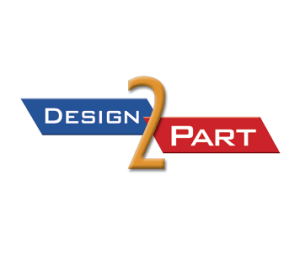 Human Driven Special Processes Are a Vital Link in the Aerospace Supply Chain
Human Driven Special Processes Are a Vital Link in the Aerospace Supply Chain
Magnetic Inspection Laboratory (MIL), a company that provides special process services like anodizing and cadmium plating to aerospace prime contractors, has been an approved supplier to Lockheed Martin for more than three decades. The company began in 1942 as a one-man operation that examined parts for the U.S. Government. Today, Magnetic Inspection Laboratory provides five broad categories of services, including chemical processing (CP), coatings (CTG), nondestructive testing (NDT), shot peening, and welding and brazing, at its 120,000-square-foot facility in Elk Grove Village, Illinois, about a 15-minute drive from Chicago O’Hare International Airport.
Mike Noettl, a special process engineer at Magnetic Inspection Laboratory (MIL), said that the company’s special processes are a vital link in the aerospace manufacturing supply chain.
“Whether they’re for helicopters, airplanes, missiles, or spacecraft, the types of processes that we perform here are used in every one of those markets,” Noettl said in a phone interview. “It’s at the absolute tail end of the entire manufacturing process, and it’s really the validation. We’re working on individual pieces; we’re not working on an entire wheel assembly, or an engine. We’re inspecting, testing, finishing, and improving the individual parts before they’re assembled into a higher assembly.”
Noettl said that its people, combined with 76 years of aerospace experience, are by far the company’s greatest strengths. That’s important because the special processes that the company uses require a high degree of skill on the part of human operators. Noettl contrasted the equipment used by Magnetic Inspection Laboratory’s technicians with machinery such as a boring machine or a horizontal milling machine.
“It’s a spray gun in the hands of a technician that can hold tolerances, by hand, that are a hundred (100) times thinner than a human hair,” he said. “And these are targets that we just have to hit. These special processes are really humanly driven, and, obviously, there’s some variation and fluctuation in what we do, but you still have to control them within certain aerospace specification requirements. And so it’s really a unique industry. If it was easy, I’d have competition next door, or down the street, but the fact of the matter is that our nearest competition is in Wichita [a good distance from Chicago]. People from custom machine shops and the aerospace primes walk into our facility, and their jaws hit the oor. They go ‘How do you guys do this stuff?’”
The special processes that MIL provides to its aerospace customers rely heavily on the experience and knowledge—both tacit and explicit—of its engineers and technicians. With this in mind, MIL maintains a strong base of veteran process personnel while focusing on knowledge sharing and management within its organization.
That bench strength enables MIL Inc. to be agile in responding to customers’ needs by quickly adding new processes and capital equipment to its plant. Last year, the company invested about $3 million to upgrade its equipment and infrastructure. Besides adding a pair of 6-axis robotic shot peening systems, MIL brought in an overhead conveyor paint line with proprietary cure capabilities. It also added 25,000 square feet of space to accommodate growth in its nondestructive testing (NDT) and welding and brazing segments.
“Our constant addition of special process capabilities enables MIL Inc. to quickly expand and service multiple product and market sectors,” Noettl wrote in an emailed response.
Examples of the aircraft components and systems that MIL is able to service are engine components, landing gear systems, ancillary support systems (such as oxygen delivery systems, auxiliary power units, and avionics), airframe components, and components for rotary winged aircraft/helicopters. The company can also process parts used in electronic intelligence gathering equipment and missile defense systems, he said.
In one example, Magnetic Inspection Laboratory received a job from a prime contractor that required it to anodize, prime, and paint a high volume of aircraft wheels per day. The company had to design and construct a coatings line specifically for the application of wet prime and paint on aircraft wheels that ranged from the iconic B-52 Stratofortress to business jets, Noettl said.
Over the years, Magnetic Inspection Laboratory had processed small quantities of aircraft wheels, but this job was different. The sheer volume and cycle time were well beyond its current capacity and capability. Cure time for the coatings accounted for nearly 60 percent of total production time, and the specification allowed no wiggle room.
“We had to employ an exhaustive amount of engineering and testing in developing a solution,” Noettl said. “We were tenacious in our efforts and relied heavily on production and manufacturing input to tweak the processes.”
Noettl said that it’s always a challenge to identify materials having the required conformability characteristics, chemical resistance, and high heat tolerance, as well as abrasion resistance and removability, all wrapped up into one solution. But an even bigger engineering challenge was the wide variety of sizes, weights, and masking variation. Noettl said that Magnetic Inspection Laboratory drew heavily on technology resources, breaking the standard tried, true, and tested methods that had served them well in the past.
“We established new benchmarks and methodologies that will serve us well on future projects,” he said.
Because aircraft parts and assemblies typically require several different special processes, many of them log frequent flyer miles traveling between multiple suppliers before being installed on an aircraft. For customers, this adds shipping time and cost, plus the likelihood of finger pointing if anything goes wrong. Magnetic Inspection Laboratory’s ability to perform multiple and diverse processes in a single location relieves customers of these concerns.
Magnetic Inspection Laboratory used several manufacturing processes on the project, including nondestructive testing, masking, anodizing, and shot peening. The company also provided priming and painting, part marking, and custom packaging.
“By adding a couple of key special processes to our arsenal, we significantly decreased the number of supply chain stops,” Noettl said.
